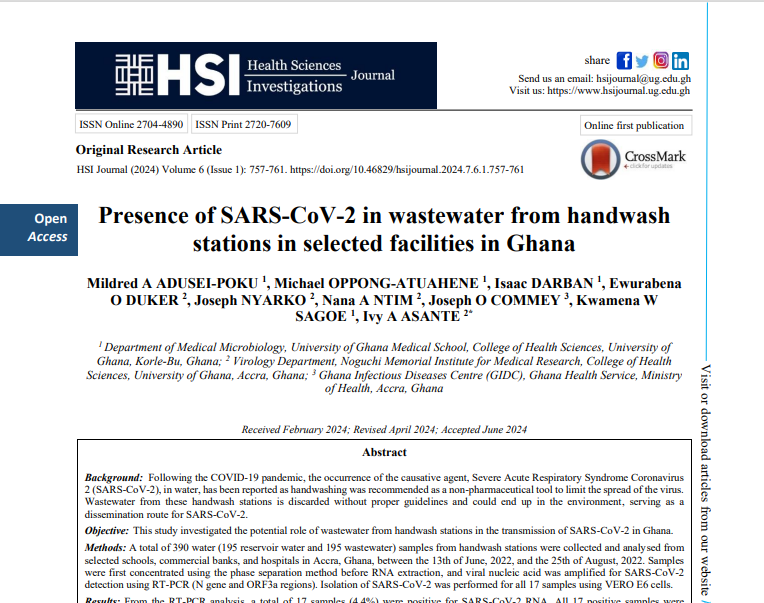Presence of SARS-CoV-2 in wastewater from handwash stations in selected facilities in Ghana
Abstract
Background: Following the COVID-19 pandemic, the occurrence of the causative agent, Severe Acute Respiratory Syndrome Coronavirus 2 (SARS-CoV-2), in water, has been reported as handwashing was recommended as a non-pharmaceutical tool to limit the spread of the virus. Wastewater from these handwash stations is discarded without proper guidelines and could end up in the environment, serving as a
dissemination route for SARS-CoV-2.
Objective: This study investigated the potential role of wastewater from handwash stations in the transmission of SARS-CoV-2 in Ghana.
Methods: A total of 390 water (195 reservoir water and 195 wastewater) samples from handwash stations were collected and analysed from selected schools, commercial banks, and hospitals in Accra, Ghana, between the 13th of June, 2022, and the 25th of August, 2022. Samples were first concentrated using the phase separation method before RNA extraction, and viral nucleic acid was amplified for SARS-CoV-2 detection using RT-PCR (N gene and ORF3a regions). Isolation of SARS-CoV-2 was performed for all 17 samples using VERO E6 cells.
Results: From the RT-PCR analysis, a total of 17 samples (4.4%) were positive for SARS-CoV-2 RNA. All 17 positive samples were wastewater samples. Propagation on Vero E6 cells yielded no cytopathic effect (CPE). Samples from schools had the highest positivity rate (15 out of 17), followed by the hospitals (2 out of 17) and the commercial banks (0 out of 17).
Conclusion: SARS-CoV-2 RNA detected in wastewater has a low likelihood of causing secondary infections in humans; however, the monitoring of SARS-CoV-2 in water matrixes could provide information on viral dynamics in the community.


